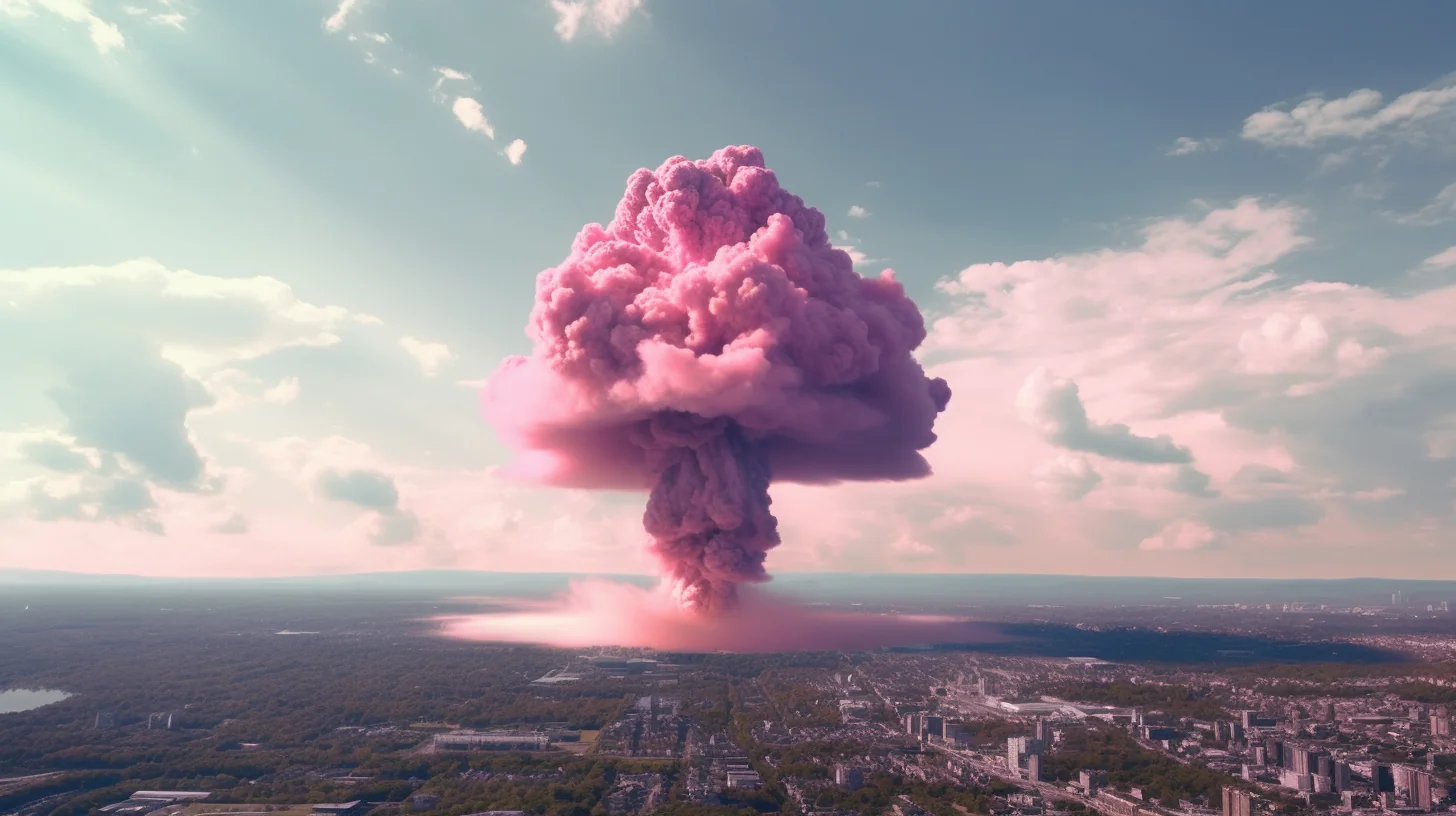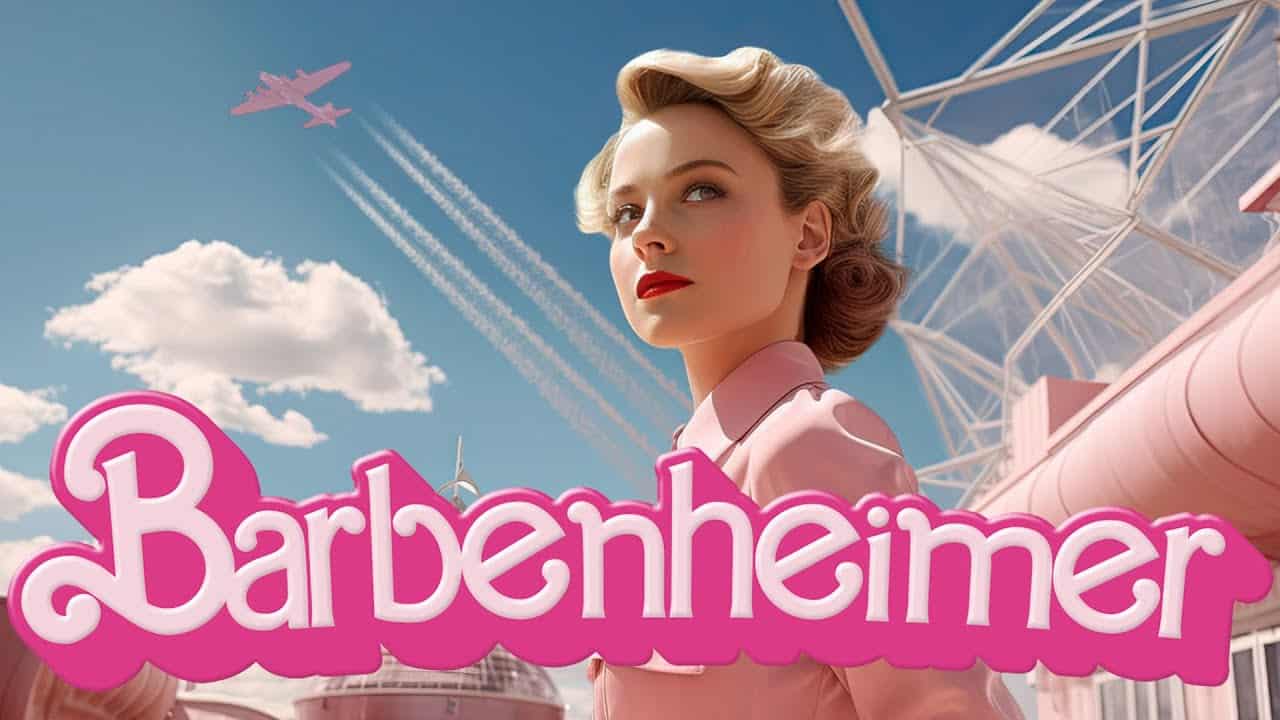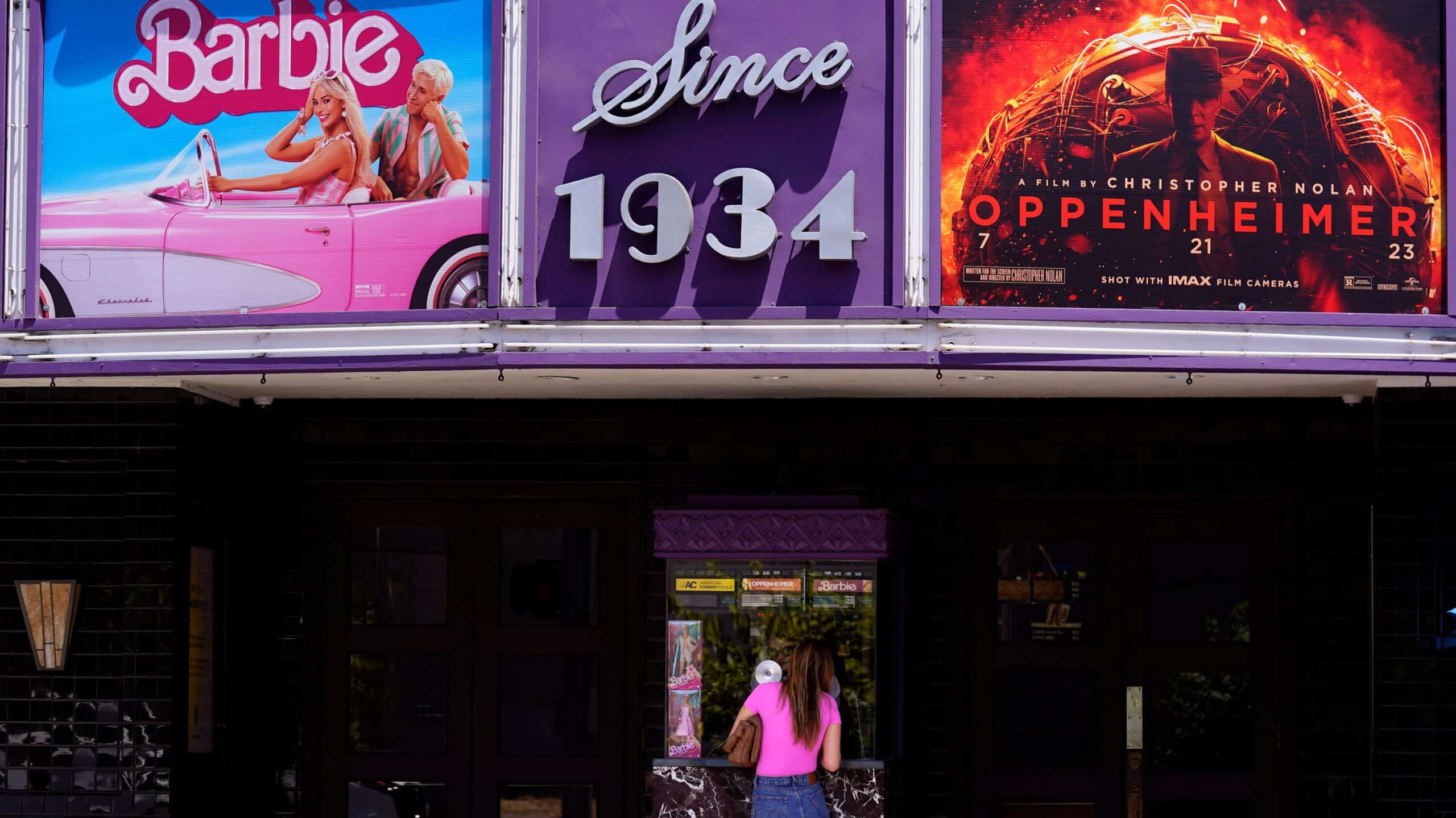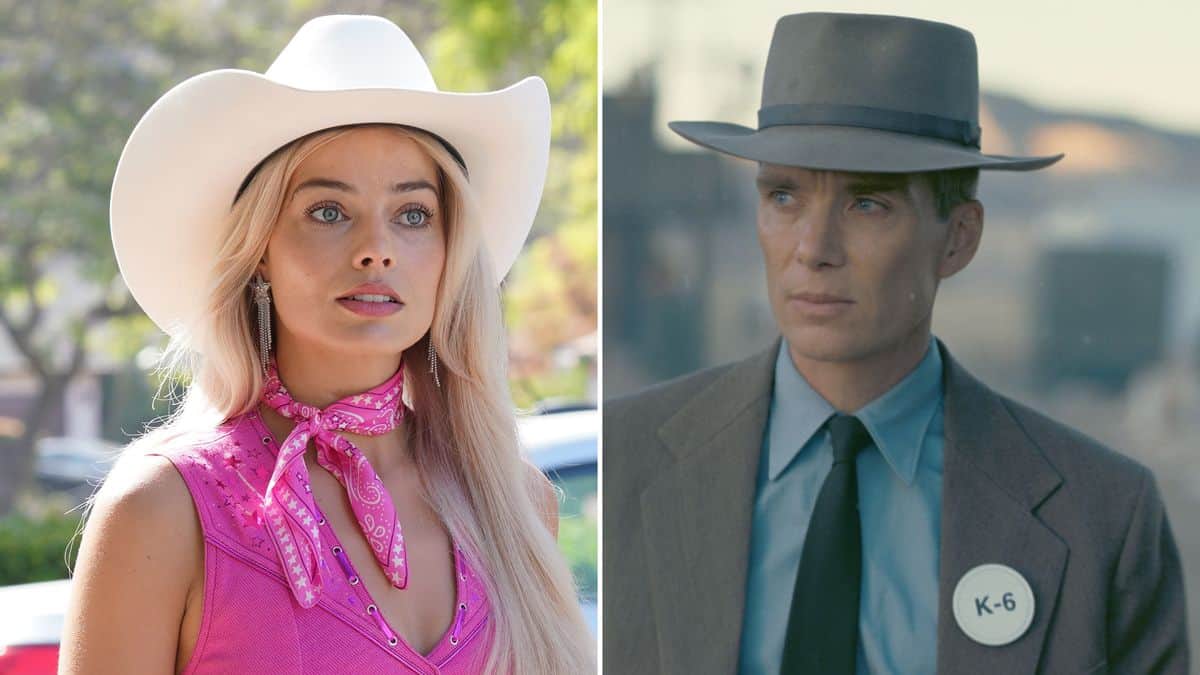Barbenheimer is a convergence of two American movies hit movie titles, “Barbie” and “Oppenheimer,” which created an Internet phenomenon that went viral on social media before the simultaneous theatrical release of these two blockbuster films, on July 21, 2023, in the U.S. and several other countries.
The film Barbie is a fantasy comedy written and directed by Greta Gerwig about the iconic fashion doll Barbie, and Oppenheimer is an epic biographical thriller directed by Christopher Nolan about a physicist and scientific director of the Manhattan Project, J. Robert Oppenheimer, who developed the first nuclear weapons during World War II.
This dichotomy prompted a comedic response from Internet users, leading to the circulation of memes and merchandise. Barbie and Oppenheimer were described as the two films as “extreme opposites” by Polygon, and Variety called the Barbenheimer phenomenon the movie event of the year.
The film’s release clash was initially thought to be counter-programming. However, as their release date approached, many suggestions to watch the films as a double feature emerged instead of creating a rivalry between them. The cast members of both films responded amicably by encouraging audiences to watch the movie on the same day.

Also Read: Oppenheimer Viewer’s Discovery Challenges Christopher Nolan’s Accuracy: A Flaw in Time
Sensitivity Surrounding Nuclear Bomb-Related Memes
The meme phenomenon dubbed “Barbenheimer” is causing a significant social media backlash in Japan. The country, being the only one to have experienced nuclear-weapon attacks, finds the conflation of these films with atomic bomb-related memes deeply unsettling, especially as it approaches the 78th anniversary of the bombings of Hiroshima and Nagasaki on August 6 and 9, 1945.
The “Barbenheimer” meme, which combines images from the Barbie movie and the biography of the inventor of the atomic bomb, Robert Oppenheimer, has been trending on social media platforms, with Japanese users adopting the hashtag #NoBarbenheimer to express their disapproval.
The situation further escalated when the official U.S. Barbie movie account participated in the trend, posting a message that read, “It’s going to be a summer to remember,” alongside a kissing emoji.
Japan’s Unique Perspective on Barbenheimer
The timing of this social media phenomenon has sparked outrage in Japan, where the anniversary of the devastating bombings is marked with solemn ceremonies and calls for nuclear disarmament.
Although Christopher Nolan’s “Oppenheimer” has not been banned in Japan, its release date remains uncertain, leaving many with heightened sensitivity to any content related to atomic weapons.
Japanese social media users described the “Barbenheimer” memes as “terrible” and criticized the insensitive combination of mushroom clouds and characters from the Barbie movie.
The images evoke painful memories of the tragic consequences of the bombings and are seen as trivializing the loss of hundreds of thousands of lives in Hiroshima and Nagasaki.

Barbie and Oppenheimer Clash on Japan’s Social Media
In response to the uproar, Warner Bros. Japan, the distributor of the Barbie movie, issued a statement apologizing for the “inappropriate” engagement of the U.S.-based Barbie movie account with the “Barbenheimer” movement.
The company clarified that it had no connection with the meme or the movement and is seeking an “appropriate response” from its U.S. parent company.
Takashi Uchiyama, a cultural and creative studies professor at Aoyama Gakuin University, highlighted that Hollywood studios typically consider themes and expressions sensitive to specific countries when releasing films. The desire to shift the timing of the release to respect the historical significance of the bombings could be a contributing factor to the delayed release of “Oppenheimer” in Japan.

Uproar Over Memes Ahead of Hiroshima and Nagasaki Commemorations
Despite the controversy, the popularity of “Barbenheimer” continues to grow across the world, drawing audiences to witness the unlikely convergence of the two very different movies. However, in Japan, the light-hearted nature of the memes is a stark contrast to the gravity with which the nation approaches the memory of the atomic bombings and their lasting impact on its people.
For Japanese audiences, the imagery of mushroom clouds is inextricably linked to death and suffering, making jokes about nuclear explosions and the bombings of Hiroshima and Nagasaki deeply troubling. The situation has led many to call for a boycott of the Barbie movie, scheduled for release in Japan on August 11, just days after the anniversary of the Nagasaki bombing.




